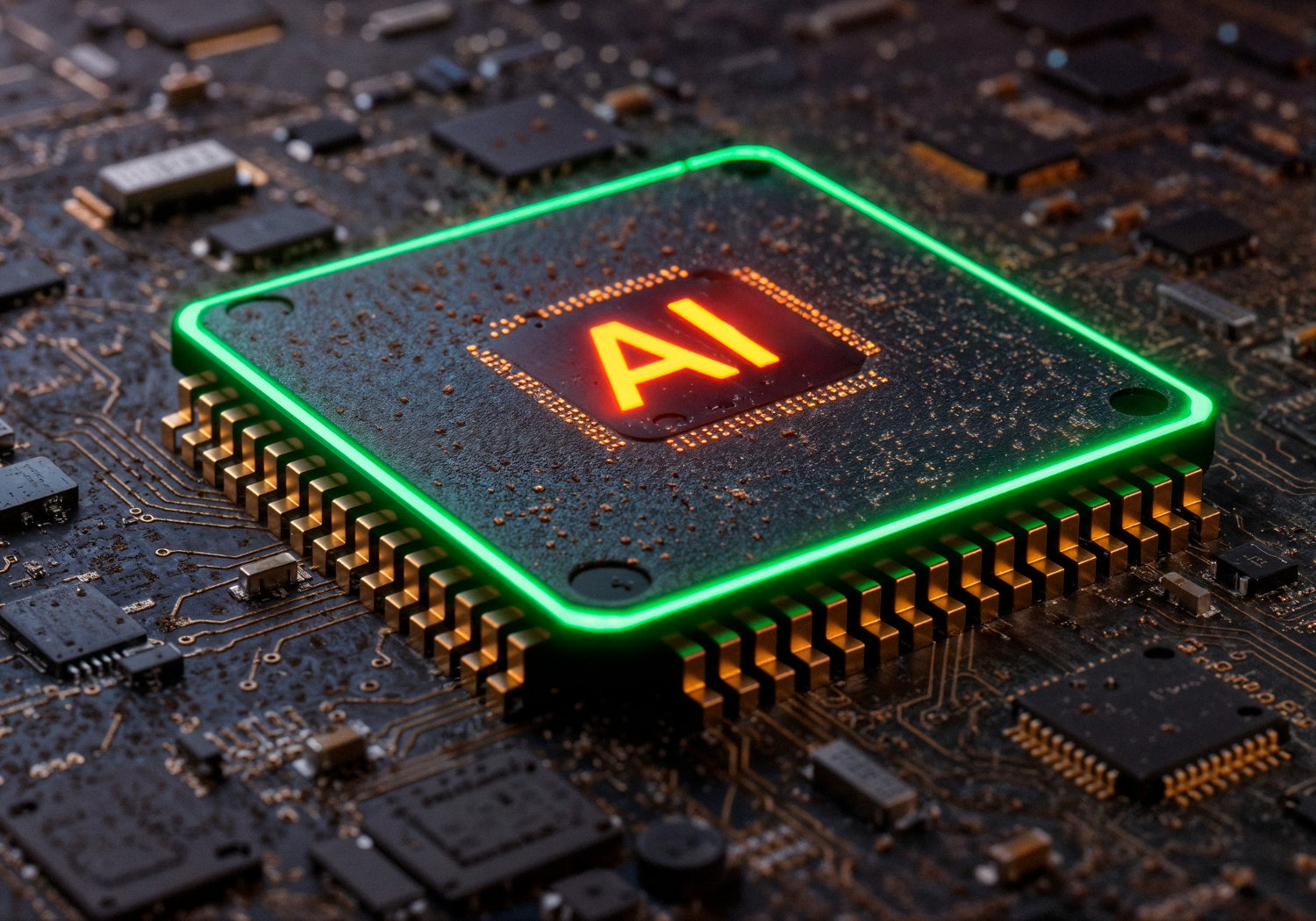Introduction
The concept of Artificial General Intelligence (AGI) has captured the imagination of computer scientists and the general public alike. Unlike narrow AI systems, which excel at specific tasks like language translation or image recognition, AGI represents the pursuit of creating machines with human-like intelligence.
These systems would possess the cognitive abilities to understand, learn, and apply knowledge across a wide range of fields, much like the human brain. The journey towards achieving this level of machine intelligence is both fascinating and challenging, raising questions about the future of AI research and its potential impact on society.
Understanding the Differences: Narrow AI vs. AGI
Narrow AI refers to AI systems designed to perform specific tasks efficiently. These systems are already integrated into our daily lives, driving cars, translating languages, and managing social media feeds. However, these systems lack the ability to generalize knowledge beyond their specific domain.
In contrast, the development of more advanced AI systems aims to mimic human intelligence. It involves creating systems that can perform tasks across various domains, exhibit problem-solving abilities, and adapt to new situations. This requires significant advancements in AI technologies, neural networks, and machine learning models.
Key Components and Challenges
Building AI that can match or exceed human intelligence involves overcoming several challenges. Cognitive abilities such as reasoning, learning, and adapting to new environments are central to this goal. Current AI models, including large language models, are based on deep learning techniques that allow them to process and generate text, understand language, and even engage in conversation. However, these models are still limited by their inability to truly understand the context or meaning behind the words.
Computer scientists are working to develop more sophisticated neural networks that can better mimic the human brain’s ability to learn and adapt. This includes research into neural networks that can process and integrate information from multiple sources, allowing AI systems to make more informed decisions.
The Role of Large Language Models
Large language models (LLMs) are a crucial step toward more advanced AI. These models are trained on vast datasets and use transformer architecture to process and generate human-like text. By fine-tuning these models, researchers aim to create systems that can understand and generate text across a wide range of topics.
Despite their impressive capabilities, these models still face challenges. One of the main issues is that they rely on pre-training and fine-tuning, which can limit their ability to adapt to new situations. Additionally, while LLMs can generate human-like text, they often lack a deep understanding of the content they produce.
Human Intelligence vs. Machine Intelligence
One of the most intriguing aspects of developing advanced AI systems is comparing them to human intelligence. The human brain is capable of complex reasoning, emotional understanding, and creativity—qualities that are difficult to replicate in machines. Current AI technologies can perform specific tasks at or above human levels, but they still struggle with tasks that require generalization and creativity.
The challenge for AI research is to bridge this gap by creating systems that can not only perform specific tasks but also think and learn in ways that are more similar to humans. This involves not only advancements in neural networks but also in understanding the nature of intelligence itself.
Applications and Implications
The potential applications of more advanced AI systems are vast. In the short term, these systems could revolutionize industries such as healthcare, finance, and transportation. For example, AI systems could assist doctors in diagnosing diseases, help financial analysts make better investment decisions, and improve the safety and efficiency of autonomous vehicles.
However, the development of advanced AI also raises ethical and societal questions. As these systems become more capable, there is a need for responsible AI development to ensure that they are used for the benefit of society. This includes addressing issues such as bias, privacy, and the potential impact on jobs.
AI Research and Future Directions
AI research is a rapidly evolving field, with new advancements being made regularly. The development of more sophisticated AI systems will require collaboration between computer scientists, cognitive scientists, and other experts. One of the key areas of research is in understanding how to create systems that can learn and adapt like humans, without being limited by the constraints of current technology.
Another important area of research is in the development of ethical guidelines for AI. As these systems become more powerful, it is essential to ensure that they are developed and used in ways that are safe, fair, and beneficial to all.
Read more: The Future of Generative AI
The Path to Achieving Artificial General Intelligence
The journey toward achieving more advanced artificial intelligence is not merely a technical challenge but also a philosophical and ethical one. As researchers push the boundaries of machine intelligence, they are not just trying to replicate human cognitive abilities but to understand the essence of intelligence itself. This quest involves a multidisciplinary approach, combining insights from cognitive science, neuroscience, philosophy, and computer science. One of the central questions is how to create systems that can learn and adapt like humans while also being able to generalize knowledge across different domains.
One of the fundamental differences between human intelligence and current AI systems is the way information is processed and understood. The human brain is capable of forming abstract concepts, understanding context, and applying knowledge to new and unfamiliar situations. In contrast, current AI systems are highly specialized, excelling in tasks for which they have been specifically trained but often struggling with tasks that require generalization or creativity.
The development of advanced AI requires creating systems that can bridge this gap. This involves not only improving neural networks but also exploring new models of learning and reasoning. For example, researchers are investigating ways to incorporate elements of human cognitive processes into AI models. This includes the ability to form and use long-term and short-term memories, understand and generate human language, and engage in complex problem-solving.
A crucial aspect of this research is the development of AI models that can learn from fewer examples and adapt to new situations with minimal retraining. Current AI systems often require vast amounts of training data to perform well, but human intelligence does not rely on such large datasets. Instead, humans can learn from a few examples and generalize this knowledge to new situations. Developing AI systems with similar capabilities is one of the key challenges in achieving more advanced AI.
The role of language models in this context is particularly significant. Language models, especially large language models (LLMs), have made substantial progress in recent years. These models are capable of generating human-like text, engaging in conversation, and even answering complex questions. However, despite their impressive capabilities, these models still face limitations, particularly in their understanding of context and meaning. They often generate text based on patterns learned from training data without truly understanding the underlying concepts.
Improving these models involves not only increasing their size and complexity but also enhancing their ability to understand and generate meaningful content. This requires advancements in natural language processing, machine learning, and neural networks. Researchers are exploring ways to make these models more efficient, reducing their reliance on large datasets while improving their ability to generate coherent and contextually appropriate responses.
Another important aspect of this research is the development of ethical guidelines for AI. As AI systems become more powerful, there is an increasing need to ensure that they are used responsibly. This includes addressing issues such as bias, fairness, and transparency. AI systems should be designed and deployed in ways that are fair and just, ensuring that they benefit all members of society while minimizing potential harm.
In the United States, AI research is supported by both public and private institutions, with significant investments being made in developing more advanced AI systems. This includes funding for research into cognitive science, neuroscience, and machine learning, as well as the development of new AI models and technologies. Collaboration between academia, industry, and government is essential to advancing the field and addressing the challenges of achieving more advanced AI.
One of the key areas of focus in AI research is understanding how to create systems that can learn and adapt like humans. This involves not only improving the underlying algorithms and models but also exploring new ways of representing and processing information. For example, researchers are investigating how to incorporate elements of human cognition into AI models, such as the ability to form abstract concepts, understand context, and apply knowledge across different domains.
In addition to technical challenges, the development of advanced AI also raises important ethical and societal questions. As these systems become more capable, it is essential to ensure that they are developed and used in ways that are safe, fair, and beneficial to all. This includes addressing issues such as bias, privacy, and the potential impact on jobs and the economy.
How TechnoLynx Can Help
At TechnoLynx, we specialise in cutting-edge AI technologies, providing advanced solutions tailored to your specific needs. Our team of experts is dedicated to developing AI systems that can enhance your business operations and drive innovation. We understand the complexities of AI research and are committed to creating solutions that are not only powerful but also ethical and responsible.
Whether you’re looking to implement large language models for natural language processing or develop more sophisticated AI systems, TechnoLynx has the expertise and experience to help you succeed. Our commitment to innovation and ethical AI development ensures that our solutions are both effective and responsible.
Contact us to start collaborating today!
Conclusion
The pursuit of advanced AI represents one of the most exciting and challenging frontiers in technology. While there are still many obstacles to overcome, the potential benefits are immense. As AI systems continue to evolve, they will undoubtedly play a central role in shaping the future of our world. Whether it’s through improving healthcare, enhancing business operations, or driving new innovations, the impact of advanced AI will be felt across every industry.
As we move forward, it is crucial to approach the development of these technologies with care and responsibility. By doing so, we can ensure that the benefits of advanced AI are realized for all, while minimizing the potential risks. At TechnoLynx, we are proud to be at the forefront of this exciting field, working to create the AI solutions of tomorrow.
Continue reading: Human and Machine: Working Together in a New Era of AI-Powered Robotics
Image credits: Freepik













